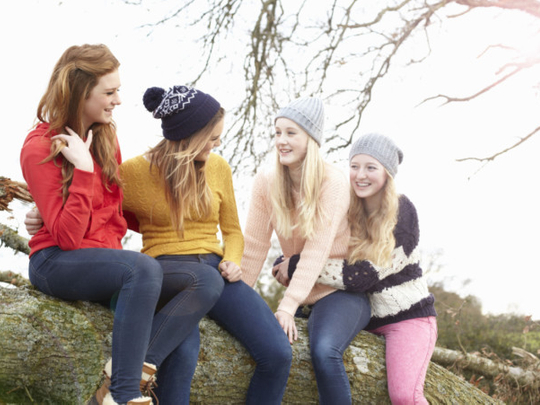
London: A drastic fall in the number of teenage pregnancies is partly the result of youngsters spending much of their time on Facebook and other social media, experts said recently.
Fewer than 30,000 babies were born to girls under 20 in England and Wales last year, official figures showed — down from more than 45,000 in 2006. The total is now at its lowest since 1951. The figures, from the Office for National Statistics, also showed the average age of a new mother was 30, up from 29.8 in 2012. It is the oldest age of motherhood since such calculations were first made in 1938.
The spectacular fall in teenage pregnancy does not appear to be connected to Labour’s Teenage Pregnancy Strategy, which concentrated on more sex education and the distribution of condoms. The strategy was halted in 2010 but numbers of babies born to teenagers have dropped by more than a quarter since then.
Analysts suggest one of the biggest changes in recent years is the rise in social media that means teenagers interact on their phones and computers rather than mixing out on the streets — where they are more likely to have underage sex.
Professor David Paton of Nottingham University said the rise in numbers of girls going into higher education and increasing influence of aspirational immigrant families who discourage single motherhood has also had an impact, as has the morning after pill and new and effective long-term contraception through injections or implants.
Changing interactions
However, he added: “Facebook use amongst teenagers was just getting off the ground in a significant way in 2007.
“It is hard to deny Facebook and other social networking applications have changed the way teenagers interact in fundamental ways.
“Is it too much of a stretch to suggest that, for at least some teenagers, the amount of time spent interacting virtually with friends on a smartphone has led to fewer physical opportunities to engage in drinking, drugs and underage sex?”
The rise among older mothers has also that meant for the first time, more babies were born in 2013 to women over 40 than teenage girls.
Older motherhood, the breakdown from the ONS said, follows more women going into higher education and careers, rising costs of having children and housing, and the “instability of partnerships”.
The ONS count of births in England and Wales last year showed a sharp fall overall in births in 2013 to 698,512, down 4.3 per cent from the 729,674 born in 2012. It was the lowest for six years and put the decade-long baby boom into reverse.
However, birthrates among immigrants, who have higher fertility rates than women among the longstanding population, remained high.












